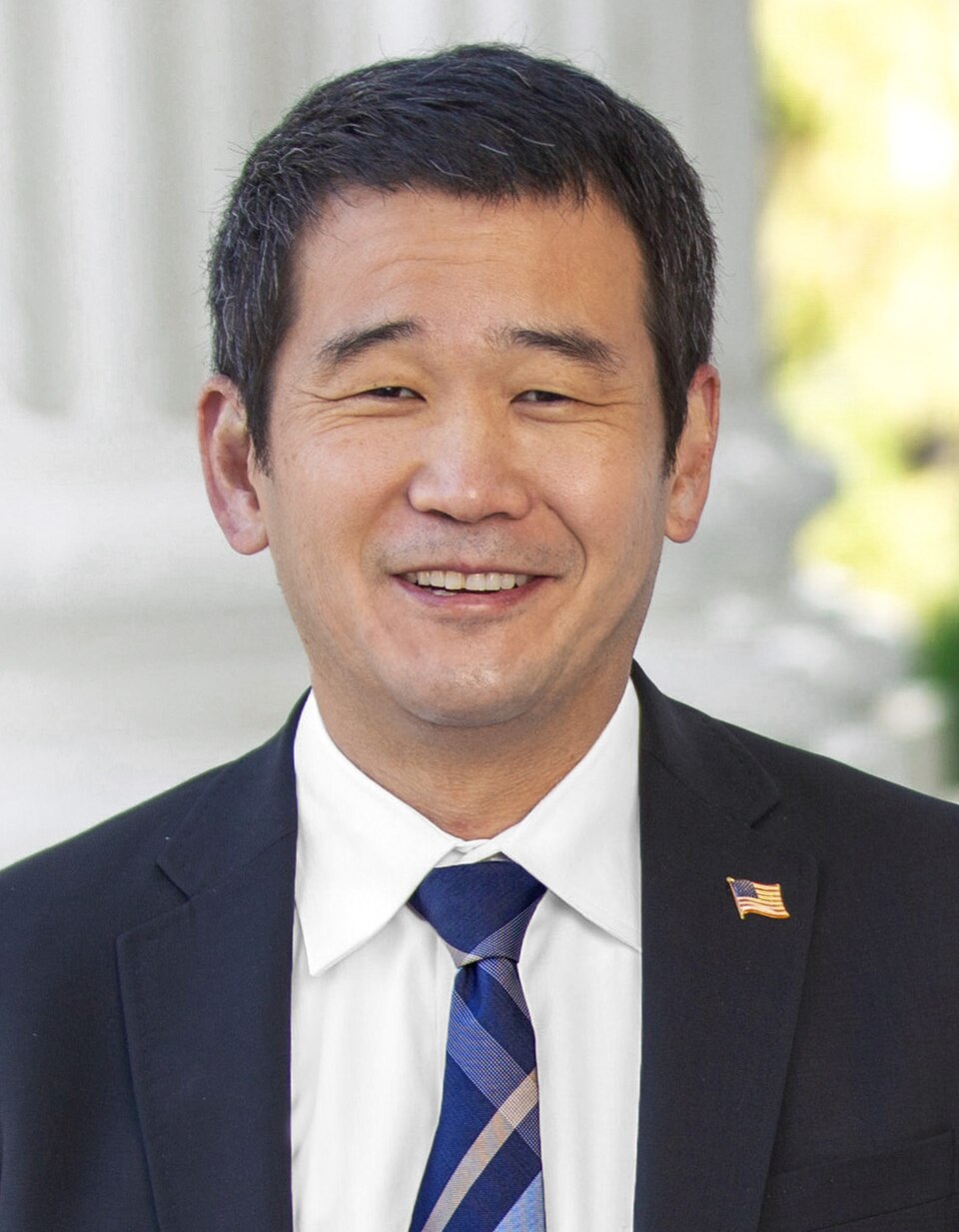Rep. Dave Min of California’s 47th Congressional District joined Orange County business leaders at a press conference on April 7 to warn of the economic consequences of President Donald Trump’s tariffs for local businesses and consumers.
President and CEO of Sonnet Technologies Robert Farnsworth and president and founder of Casco Contractors Cheryl Osborn spoke alongside Min at Sonnet Technologies in Irvine.
On April 2, the White House announced expansive global tariffs. Stock markets across the globe plunged, and multiple countries have unveiled retaliatory tariffs on U.S. goods. According to the New York Times, in response to China’s announcement of a 34% tariff on American products, the United States retaliated with a 104% tariff on Chinese imports.
During his address, Min warned of the dangers of escalation into an “all-out trade war” and drew on historical precedent.
“The last time, as we all know, that we tried tariffs in a major way like this, that led to the Great Depression,” Min said.
Min was referring to the Smoot-Hawley Tariff Act of 1930, which raised tariffs by 20% on average, to an overall average levy of 59.1%. Since this act, the U.S. has not seen such a significant increase in tariff levels until today.
On April 9, broad tariffs went into effect, including a 104% levy on China. Later that day, President Trump announced a 90-day pause on reciprocal tariffs for all countries besides China, bringing tariffs down to a universal 10%.
As one of the largest hubs for global trade, Southern California is especially impacted by the newly imposed trade barriers, particularly trade from Asia. According to the Bureau of Transportation Statistics, the Port of Los Angeles imported more than three times as many tons of goods from China as any other port in the United States over the past six years.
Orange County businesses raised concerns over the growing uncertainty of fluctuating tariff levels, many of which rely heavily on international supply chains and now fear disruptions to their operations.
During the press conference, Osborn emphasized that the newly implemented tariffs would harm businesses like hers in multiple ways. Osborn warned that uncertainty over the cost of importing materials would lead contractors to “back out of certain projects” and would begin to “downsize their construction,” resulting in an overall slowdown in housing development. She added that this pattern could further increase home prices and the overall cost of living.
“Not only are they material issues — obviously aluminum, steel, building materials — but cost of living increases for employees,” Osborn said.
Farnsworth expressed concerns over the stability of their business due to the unpredictable nature of the tariff levels. Farnsworth echoed a sentiment felt by many electronics companies with supply chains across the globe, adding that tariffs “drives up our costs — that means we need to raise prices.” He worried that international customers would turn to foreign competitors unaffected by these trade penalties.
“We’re proud to have always manufactured in America, but our ability to be cost-competitive has been threatened, and, of course, that puts our jobs at risk. We need a predictable supply chain with fair prices, and we can’t get that now,” Farnsworth said. “After 38 years in business, our very survival is at stake.”
Farnsworth also warned that this loss of international markets would squeeze Sonnet’s profit margins, restricting their ability to innovate, invest in new products or even survive as a company.
While Min acknowledged some agreement with President Trump’s goals, he still criticized the administration’s approach as reckless and damaging.
“I, like Donald Trump, want to see more manufacturing in the United States,” Min said. “I also agree that there may be a place for targeted tariffs — when they are specific, when they’re thoughtful, when they’re levied in response to illegal, uncompetitive behavior by other countries.”
In a post on X on April 8, Min continued to highlight the economic worry that he, Osborn and Farnsworth emphasized at their press conference.
“This is pure madness,” Min wrote, “and unless Congressional Republicans take action, millions of families are going to be devastated by higher costs and lost jobs.”
Niko Wilson is a News Intern for the spring 2025 quarter. He can be reached at nikow@uci.edu.
Edited by Jaheem Conley

